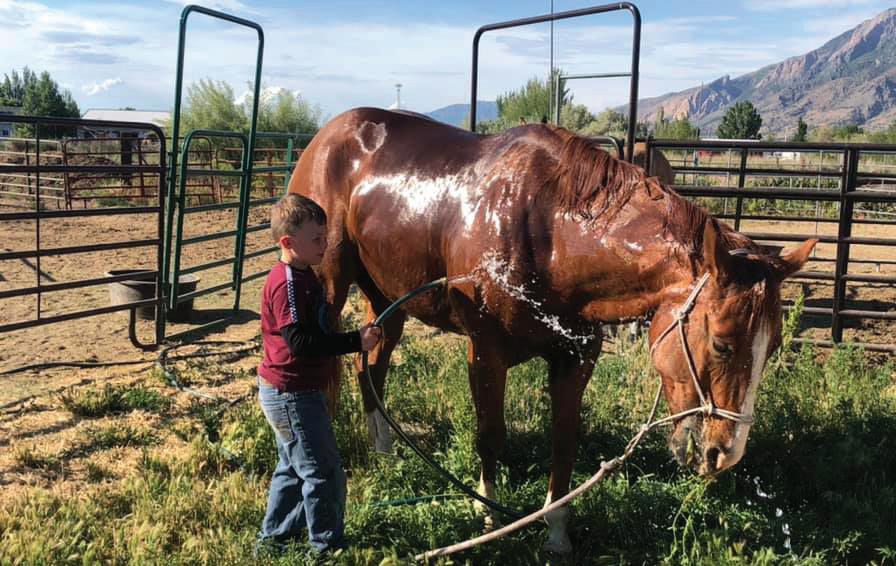ANIMAL CARE
Tongue and cheek, straight from the horses mouth
Photos by Justin Stark
Henry Golden Boy The Gun that Brings Out the West in You
Your Price
Model: H004 Call for Pricing • Caliber .22 S/ULR • Octagon Barrel • American Walnut Stock Your Price Your Price Your Price
22 Standard-Examiner
The equine mouth is a very complex environment. While it is similar to the mouth of cows, goats and other herbivores, we expect our horses to live much longer than the other farm animals. This need for longevity requires extra care so the teeth last beyond their life expectancy of 18 to 25 years. Cheek and tongue ulcers are of the most common form of oral discomfort that your horse may experience. Most horses in our region will develop these painful lesions as the soft tissues in the mouth are pushed into the edges of the teeth. Since horses are quite stoic and hide their pain, you may not even know they are experiencing any discomfort, but from a thorough dental exam with a bright light and a full mouth speculum, these lesions become quite apparent and are easily remedied. Both normal and abnormal chewing patterns of a horse will form sharp edges on the outside of the upper molars and premolars and on the tongue side of the lowers. As the cheek muscle (masseter muscle) flexes to move the jaw in the chewing motion, the soft inner cheek tissue will be pressed against the sharp edges of the upper teeth. This will cause a chronic sore (ulcer) that will not go away unless the sharp points of the teeth are filed down. The tongue can experience similar lesions from the lower teeth as it moves feed around the mouth to aid in mastication. Our tack can also be a source for these types of sores inside a horse’s mouth. Bosals, nose bands, some types of bits, and even some halters can put pressure on the sharp points of the
Equine Dentistry By Justin Stark teeth through the cheek. An educated equine dentist is trained to recognize these problems and should be properly equipped to handle them. You may also ask your dental professional to look at your bits and tack to see if there is anything that may be causing these sores inside the mouth. If annual dental care is not part of your regular routine, you may wish to rethink that decision. A healthy horse will perform better if his mouth is kept in good condition; his teeth will last longer and he will be more feedefficient.


















